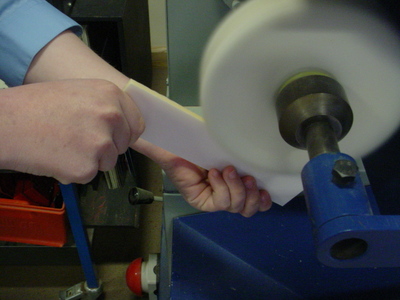POM (Delrin/Acetal) CNC Machining
Delrin, a type of POM engineering thermoplastic, is an ideal material for the CNC machining of high-precision mechanical components.
With its high stiffness, excellent dimensional stability, low friction, and ease of machining, Delrin offers superior accuracy and reliability in precision parts.
- Certified Materials
- Factory Price
- No Minimum Order
- Fast Turnaround
Save 30% cost on average!
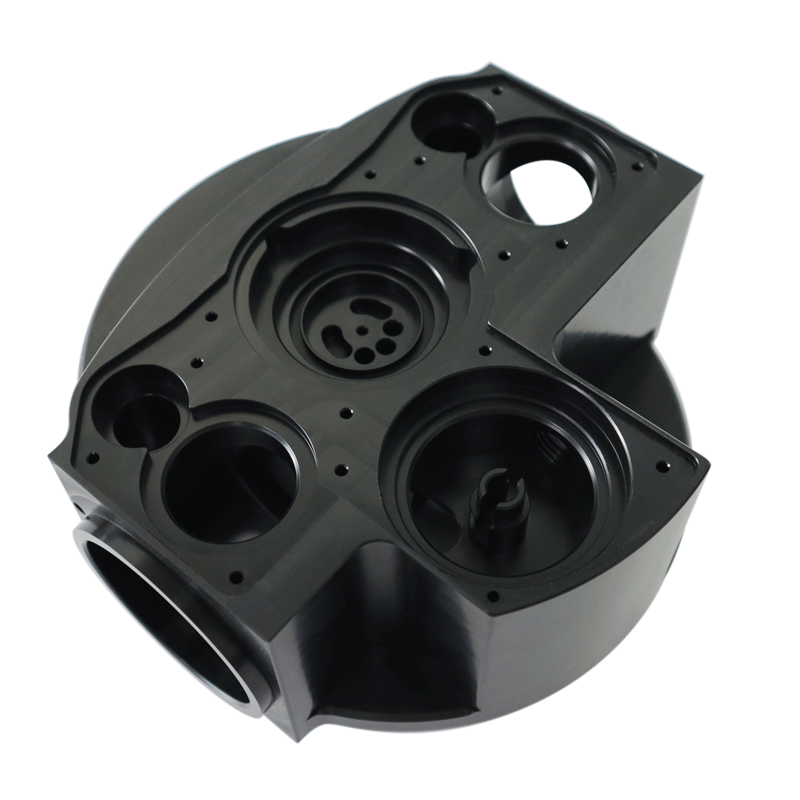
Advanced CNC Machining Sercice for Your POM Parts
Are you looking for a reliable partner to provide CNC machining services?
AT-Machining is a premier provider of CNC machining services based in China. Our comprehensive range of 3-axis, 4-axis, and 5-axis CNC milling, turning centers, and CNC Lathe machines empower us to manufacture precise, top-quality CNC parts that meet your exact specifications. With a capacity of over 50 CNC machines in China, AT Machining can serve as your perfect partner for outsourcing custom and precision CNC machining services, regardless of your industry.
Request a quote today to get started.
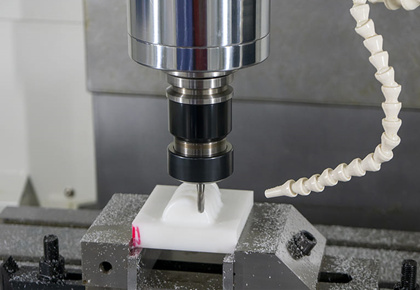
Optimized CNC milling machining service for POM parts, offering precision and versatility with 3, 4, and 5-axis capability.
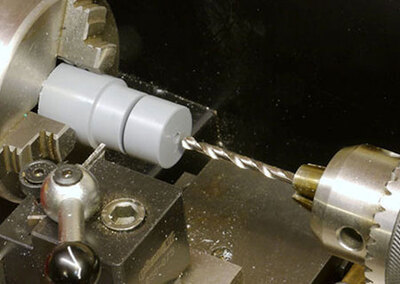
Efficient cnc turning with live tooling for machining Delrin parts with cylindrical features, combining lathe and milling capabilities.
The surface finish of the CNC machined POM parts can be further improved with additional finishing techniques such as polishing or sandblasting.
What is POM (Delrin/Acetal)
POM, also known as acetal or polyacetal, is a thermoplastic material known for its exceptional strength, stiffness, toughness, and low coefficient of friction. Delrin belongs to the wider category of POM plastics and is a particular brand of acetal. Despite different manufacturers, Delrin and other POM acetal materials share similar properties. POM is commonly used as a substitute for metals in mechanical parts due to its high wear resistance, low friction, and resistance to abrasion, chemicals, and moisture. Additionally, it can withstand a wide range of temperatures.
POM can be CNC machined into complex shapes and is available in various grades with different properties, such as enhanced stiffness or improved chemical resistance, to suit different applications. It is used in a wide range of industries, including automotive, electrical, medical, and consumer goods.
There are several popular grades of polyoxymethylene (POM), each with different properties that make them suitable for specific applications. Here are some of the most commonly used grades of POM:
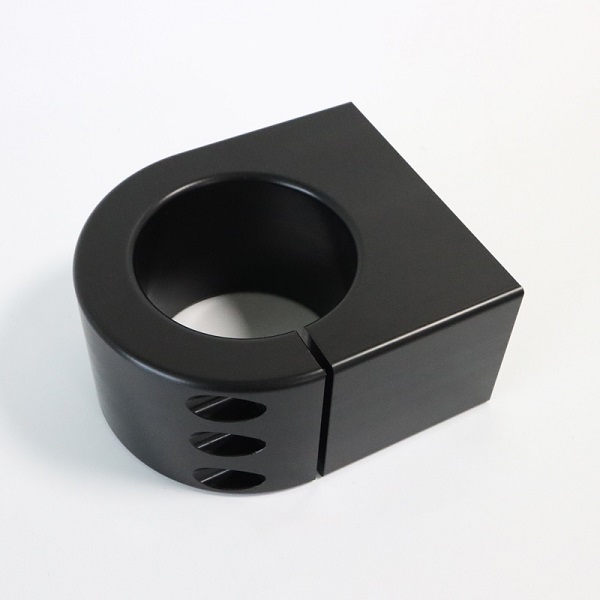
The most common POM grade used for manufacturing is acetal copolymer (POM-C), also known as polyoxymethylene copolymer. POM-C has a good balance of mechanical properties, including high stiffness, low friction, and excellent dimensional stability. It is also resistant to moisture and chemicals, making it suitable for use in a wide range of applications, including automotive, medical, and consumer products.
POM homopolymer (POM-H) is another grade of POM that has higher stiffness and hardness than POM-C, but it is also more brittle and has lower impact strength. POM-H is often used in applications that require high stiffness and strength, such as gears and bearings.
UV stabilized POM is typically used in outdoor or UV-exposed applications where prolonged exposure to sunlight or UV radiation can cause the material to degrade or discolor over time.
This is a specialized grade of POM that is approved for use in contact with food and beverages. It is formulated to meet stringent food safety regulations and does not contain any harmful substances that can leach into food.
POM Mechanical Properties Chart
Material selection can be the difference between success and failure for any project. Educate yourself on material properties to make sure you use them in a way that brings optimal results.
| Density (g /cm3) | Rockwell Hardness | Tensile Strength, Yield | Elongation at Break | Tensile Modulus | Softening Temperature | Friction Coefficient | |
|---|---|---|---|---|---|---|---|
| POM | 1.39-1.43 | 135 MPa | 63 MPa | 27 % | 2600 Mpa | 150℃ | 0.35 |
CNC machining POM (Delrin/Acetal) Materials
When CNC machining POM, it is important to use appropriate cutting tools and machining parameters to prevent overheating and maintain a good surface finish.
Our CNC machines with 3, 4, or 5 axes CNC milling and turning can be used to create easy and complex shapes with tight tolerances and excellent dimensional stability.
Our experienced team of engineers and machinists specializes in CNC machining POM and other thermoplastic materials to meet your exact specifications. If you need high-quality POM components for your project, contact AT-Machining today.
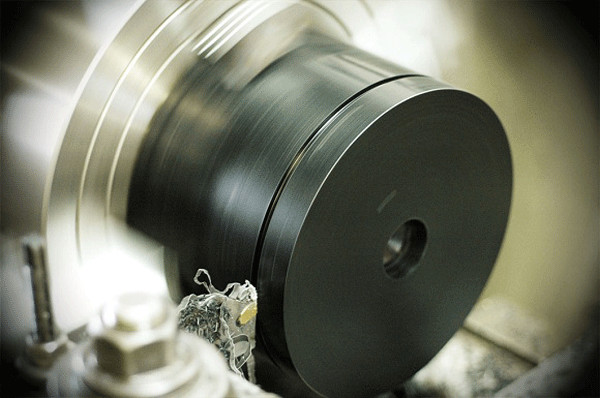
Benefit of POM CNC machining
There are several benefits to CNC machining Polyoxymethylene (POM):
High Precision
CNC machining allows for high precision and accuracy in the production of POM parts, making it possible to create complex shapes and features with tight tolerances.
Consistency
CNC machines can produce a large volume of POM parts with consistent quality and dimensional accuracy, ensuring that each part meets the required specifications.
Efficiency
CNC machining is a fast and efficient process, which can reduce production times and costs compared to other methods of manufacturing POM parts.
Design flexibility
CNC machining can produce POM parts in a wide range of shapes and sizes, making it possible to create customized parts to meet specific design requirements.
Material Properties
POM is a material that boasts exceptional strength, stiffness, and resistance to wear, allowing it to perform well under various environmental conditions and temperature ranges.
Low Waste
CNC machining produces minimal waste material, which can help to reduce material costs and minimize environmental impact.
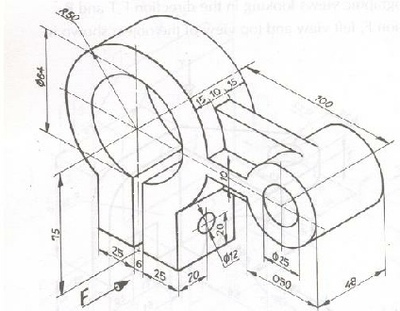
Optimize Part Design
The complexity and size of the POM part can impact the machining time and cost. Optimize the part design by reducing the unnecessary features and tight tolereance can help to reduce machining time and costs.
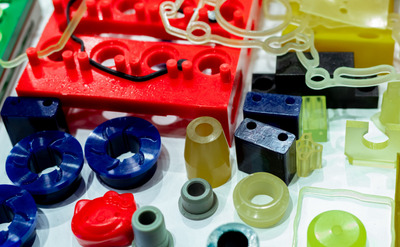
Larger Batch Sizes
Using larger batch sizes can help reduce the cost of CNC machining POM parts by optimizing machine time and reducing setup costs associated with changing tools and fixtures between different jobs.
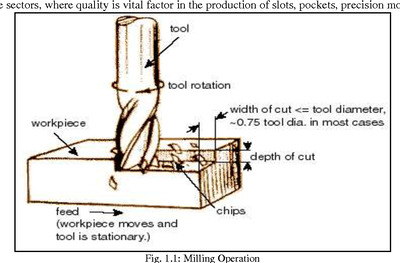
Machining Parameters
Optimizing the machining parameters, such as cutting speed, feed rate, and depth of cut, can help to reduce machining time and improve part quality. Choosing appropriate parameters can also help to prevent overheating and material degradation.

Supplier Selection
Choosing a reputable and experienced CNC machining company like AT-Machining can help to ensure that the POM parts are produced efficiently and cost-effectively. A good supplier can provide expertise in material selection, part design, and machining optimization, which can help to reduce costs.
Gallery of CNC machined POM parts
Our team prides itself on our superior manufacturing capabilities, enabling us to expertly handle the production needs of customers across a wide array of industries. From medical devices and aerospace technology to hardware startups and marine robotics – no project is too large or small for us!
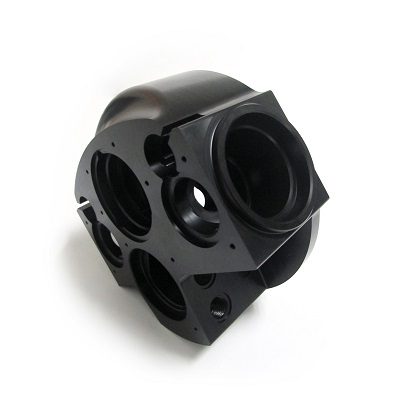
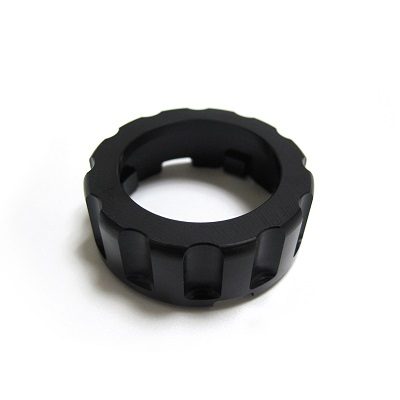
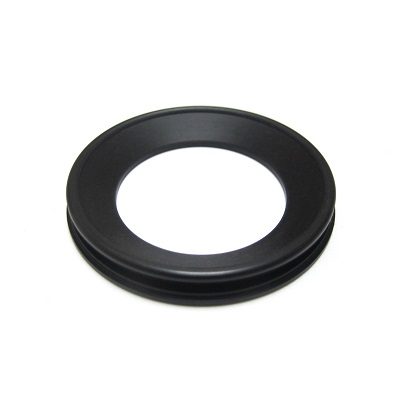
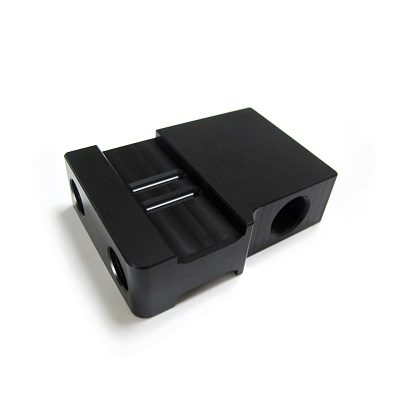
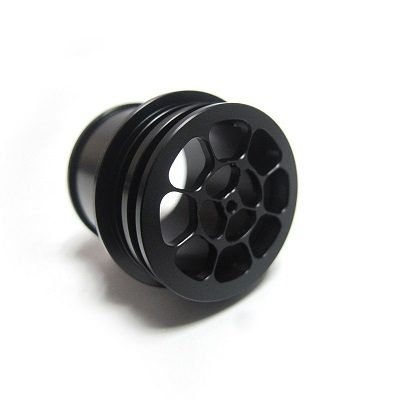
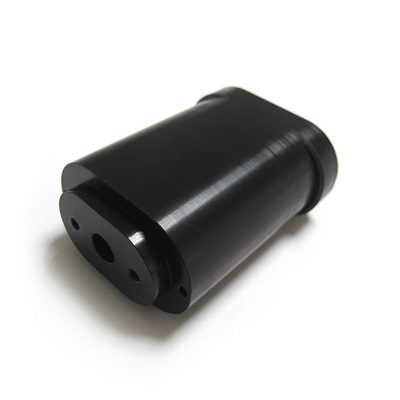
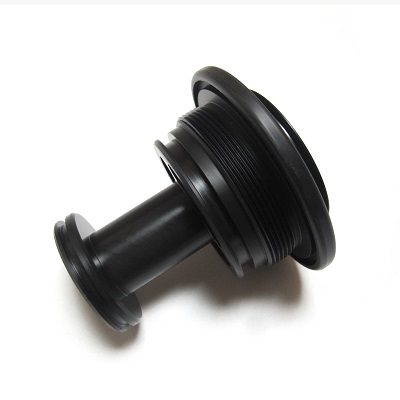
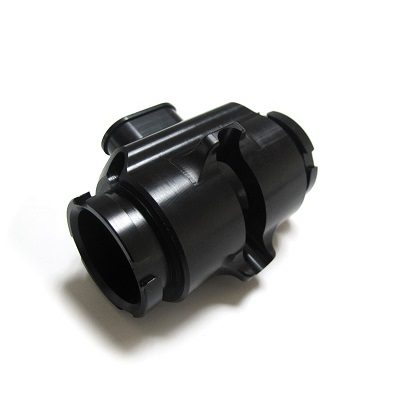
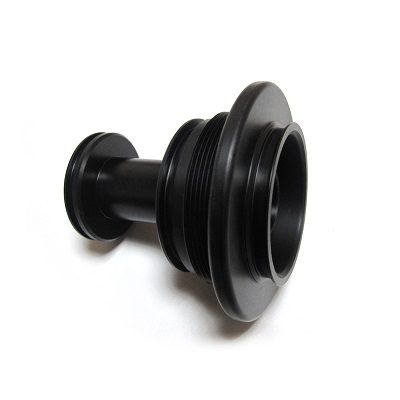
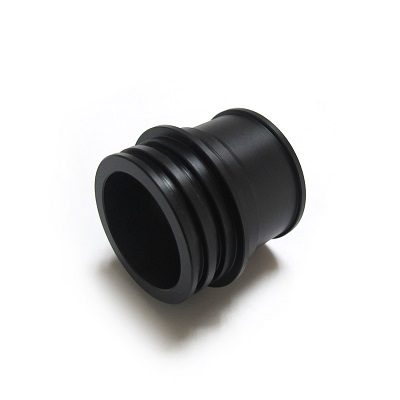
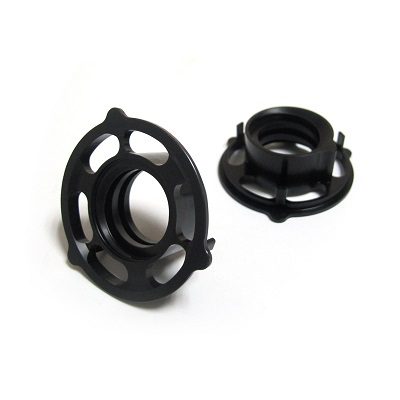
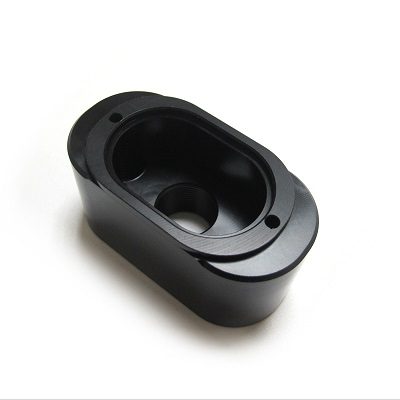
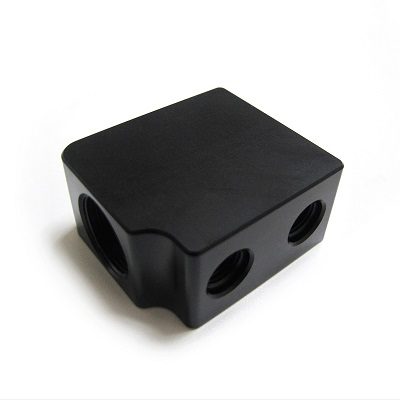
CNC Machining POM FAQs
POM (Polyoxymethylene), also known as Acetal or Delrin, is a thermoplastic material known for its high stiffness, strength, and wear resistance. It is commonly used in automotive, electrical, and consumer goods applications due to its excellent mechanical properties and dimensional stability.
- High stiffness and strength: POM is a strong and stiff material that can withstand high loads and stresses.
- Low coefficient of friction: POM has a low coefficient of friction, making it an excellent choice for parts that require a smooth and quiet operation.
- Good dimensional stability: POM has excellent dimensional stability, meaning it is resistant to changes in size and shape due to temperature and humidity variations.
- Good wear resistance: POM has a high resistance to wear, making it suitable for parts that experience high levels of friction and abrasion.
- Chemical resistance: POM is resistant to many common chemicals, including solvents and fuels.
while both POM and ABS can be CNC machined, POM, is generally considered to be a better material for this process due to its high dimensional stability, hardness, and low coefficient of friction, which make it easier to machine and produce high-precision parts
POM is approved for use in food contact applications by regulatory agencies such as the FDA and the European Food Safety Authority. This means that POM is considered safe for use in food packaging and processing equipment, and will not leach harmful chemicals into food or beverages
- Gears: POM is commonly used to produce gears for use in machinery and mechanical equipment due to its high wear resistance, low coefficient of friction, and excellent dimensional stability.
- Bearings: POM is also used to produce bearings and other components that require low friction and high wear resistance.
- Bushings: POM is used to produce bushings, which are components that provide a sliding or rotating surface for other mechanical parts.
- Electrical components: POM is used to produce electrical components such as switches, connectors, and insulators due to its high dielectric strength and resistance to moisture.
- Automotive components: POM is used to produce automotive components such as fuel system components, door handles, and other parts that require high strength and resistance to wear and tear.
- Medical components: POM is used to produce components for medical devices and equipment due to its biocompatibility and ability to withstand sterilization.
- Sports equipment: POM is used to produce components for sports equipment such as ski bindings, golf club heads, and other high-performance gear.
In terms of machining, aluminum is a bit more challenging to machine than POM because it is metal and can be more difficult to cut and shape. However, aluminum can also produce a high-quality surface finish and can be machined to very tight tolerances, making it a good choice for applications that require high precision.
POM (polyoxymethylene) and nylon are both strong and durable thermoplastics that have a wide range of industrial applications. In general, POM is considered to be stronger and more rigid than nylon, while nylon is more flexible and has better impact resistance.

